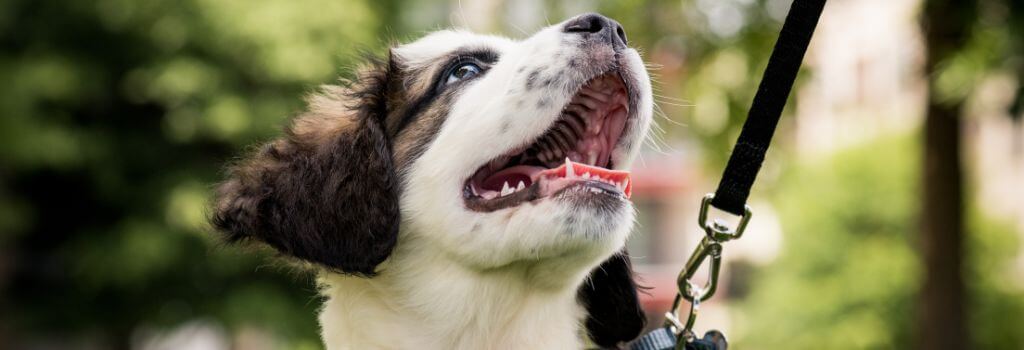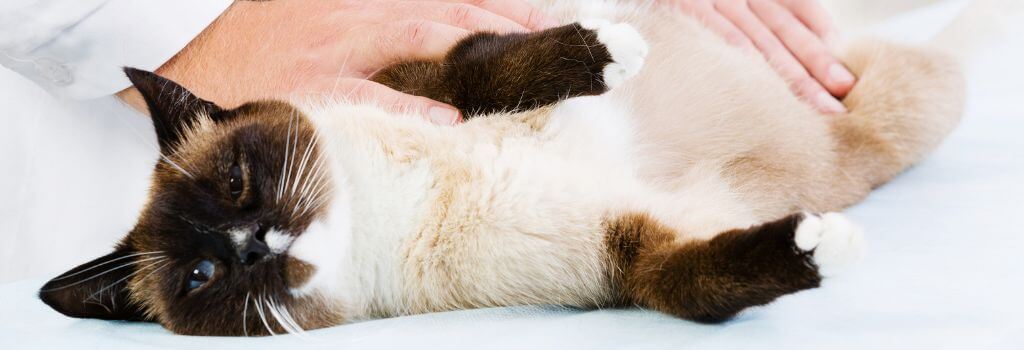Congratulations on the adoption of your new pet! We are thrilled that you decided to adopt a pet from the shelter and save a life!
While you’re probably still on cloud nine and planning everything you’re going to do with your new pet, we’d like to make a suggestion for something that needs to be done sooner rather than later: establishing your newly adopted pet with a veterinarian.
Setting up an appointment with a veterinarian should be one of the top things on your to-do list after bringing a new furry family member home. Seeing the vet early on can help you better understand your new pet’s needs, and getting a clean bill of health from the veterinarian can help you start enjoying life with your dog or cat, worry free.

What to Expect After You’ve Adopted from a Shelter or Rescue
When you adopt a dog or cat from a shelter, they have most likely already received some degree of medical care. But there’s no guarantee on what procedures or vaccines your new pet has received. Protocols and medical care options can vary from shelter to shelter and even from pet to pet, depending on when they arrived at the shelter, as well as a few other factors like age, gender, and health status.
A dog or cat you adopt from a shelter may already have received some vaccines, have been spayed or neutered, and have been microchipped. Shelters work diligently to make the adoption process as seamless as possible, ensuring that the basic health needs of the pets are met before they go to their new homes. However, it is crucial to follow up with your veterinarian soon after adoption. While the shelter’s initial medical care is essential, a thorough veterinary examination is necessary to establish a comprehensive health baseline for your new pet. A thorough veterinary exam will help identify any underlying health issues that may not have been apparent during the shelter’s evaluation and will provide an opportunity to discuss a long-term care plan tailored to your pet’s specific needs.
Initial visits like these with your new pet are also a great opportunity to ask questions and get recommendations from your veterinarian. At this visit, you can address any behavioral or dietary questions you might have and schedule any follow-up vaccinations that may be required to keep your new pet healthy and protected.
Finding a Vet For Your Newly Adopted Pet
The first step in supporting your new pet's long-term health is finding a veterinarian you trust. A good vet will become a crucial partner in your pet's life, helping you navigate everything from routine checkups to unexpected health concerns. Take time to ask friends, family, or your local shelter for recommendations, as many shelters have relationships with local vets and may offer discounted first visits!
You can also go online to find and research top veterinarians in your area, using a regular search engine or tools like GeniusVets’ Veterinary Practice Directory. By searching online, you can read reviews and experiences from other pet owners, get insights into what services and products each practice offers, and make the most informed decision based on the needs of both you and your new furry friend.
What to Look for When Choosing a Veterinary Practice
- Reputation and Reviews
- Location and Accessibility
- Range of Services
- Experienced and Compassionate Staff
- Cleanliness and Organization
- Emergency Care Capabilities
- Communication and Transparency
- Pet-Focused Approach
- Compatibility with You and Your Pet
- Exceptional Client Services and Support

What Healthcare Your New Pet Needs
Wellness Exam
A thorough wellness exam is necessary to ensure your new pet is as healthy as possible before bringing them into your home and possibly introducing them to your other pets. If a pet comes to the shelter and is already spayed or neutered, they may not receive a full wellness exam that includes an examination of the heart, lungs, and more. So, it’s always important for pet owners to get their new family members thoroughly examined by a trusted veterinarian to make sure they’re in tip top shape and ready to be integrated into your family.
A wellness exam is typically a complete nose-to-tail exam that includes a thorough musculoskeletal exam, eye and ear exam, oral and dental exam, and inspection of the abdomen, lymph nodes, and skin, as well as weight and temperature checks. New pets should be brought in for wellness exams right away, regardless of their age.
Vaccines
Vaccines are crucial for the health and well-being of every pet, and should never be skipped. Vaccines are given to cats and dogs to protect them from common illnesses and diseases, like rabies, parvovirus, distemper, Bordetella, and influenza, among others. During your pet’s first vet visit, your veterinarian will be able to walk you through which core and noncore vaccines may be necessary for your pet based on their age, lifestyle, and health status.
For younger animals like puppies and kittens, vaccines are given in a series. This means that while a newly adopted puppy or kitten may be current on their vaccines now, they will need additional vaccinations to stay up to date. Some states even have specific laws regarding certain vaccinations, so be sure to check with your veterinarian early on to make sure you and your pet are complying with local regulations!
Pro Tip: Bring along any paperwork you received from the adoption center so your veterinarian can see what your pet may have recently been vaccinated for so your pet can stay on the same schedule. If the pet you chose was previously owned by another family, they are required to give you any medical history that was given!
Lab Work
In addition to a fullness wellness exam, a visit with your veterinarian may also include common lab work to ensure your pet is healthy and doesn’t have any underlying health concerns that you might not be aware of. Lab work your veterinarian may recommend for your newly adopted pet can include:
- Fecal exams
- Blood chemistry exams
- Complete blood count
- Urinalysis
Having lab work done at the start of your relationship with your new pet can help your veterinarian establish a baseline of what their “normal” health and lab numbers look like. As your pet ages and you continue to bring them in for exams, your veterinarian will have records to refer back to and baselines to help establish if anything is amiss or health issues are developing.
Preventive Care Plan
Working with a veterinarian to establish a preventive care plan can set your new pet up for a long and healthy life. This plan might include a schedule for regular wellness exams, vaccinations, dental care, advice on nutrition and exercise, and recommendations for preventive medicines, like flea and tick products.
Spay or Neuter
If your pet hasn’t already been spayed or neutered, your vet will discuss the best time to schedule this surgery. Spaying and neutering help prevent certain health issues and reduce the number of homeless pets.
Microchipping
With an estimated one in three pets getting lost or stolen during their life, microchipping is a crucial pet safety practice that every pet parent should be prioritizing.
While most shelters microchip pets before adoption, your vet can help you register the chip with your contact information. If your pet isn’t microchipped, this quick and safe procedure can be done during a routine visit.
If someone finds your dog or cat and brings them to a shelter or veterinary clinic, the staff will use a specialized scanner to detect a microchip. The scanner reads the microchip’s ID number, which can then be used to track down the pet’s owner. While no method guarantees the return of a lost pet, having them microchipped greatly increases the chances.
Microchips are also invaluable in proving pet ownership if your pet is ever stolen. Authorities can scan the microchip to confirm the rightful owner and help resolve disputes regarding pet theft.
Partner with a Veterinarian for a Happier New Pet
Don't have a vet in your area yet? We can help you find a local veterinarian.
If you have more questions, the GeniusVets Teletriage platform will give you unlimited access to text and/or video calls with board-certified veterinarians! To learn more click here.
